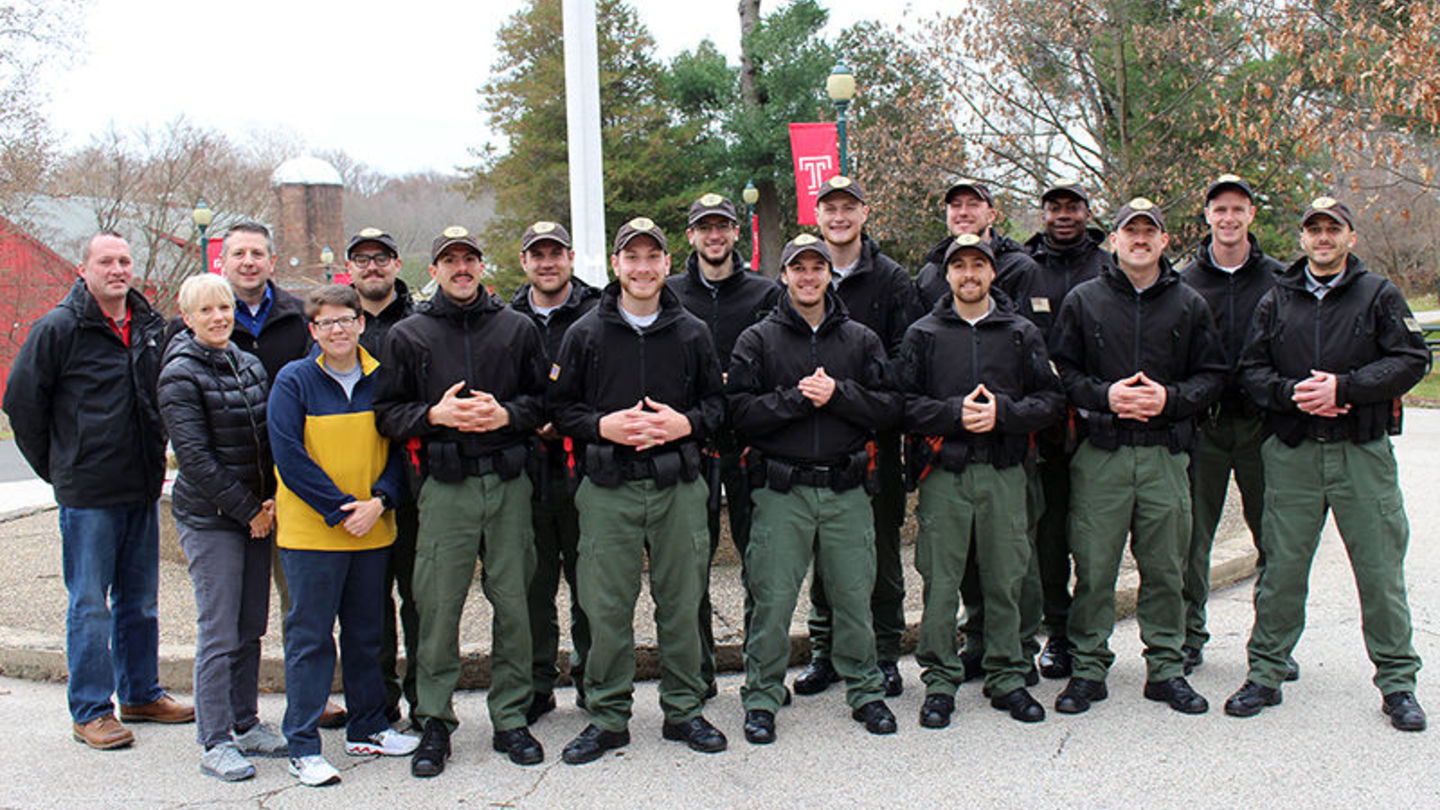
During the month of November, cadets in Temple's Seasonal Law Enforcement Training Program (SLETP), located at the Ambler Campus, forswore their razors to show support for cancer patients bravely undertaking chemotherapy treatments.
"No Shave November," which began in 2009, has become an important tradition with many law enforcement agencies throughout the country, according to Chris Willard, Assistant Director of the Seasonal Law Enforcement Training Program. SLETP cadets this year were eager to become a part of that tradition for the first time.
"No Shave November was a grassroots initiative. It started with family members looking for a way to physically show their support for someone going through chemo," she said. "The decided to stop shaving to show solidarity with their friend or loved one who, because of their treatments, had lost their hair."
Over the years, Willard said, law enforcement agencies adopted No Shave November as their own.
"When you're in law enforcement, you are usually not allowed to have facial hair. The agencies decided that for the month of November, participants were allowed to grow out their beards to show support for cancer patients," she said. "Some agencies also collect funds for cancer research charities as well."
For SLETP, participation was entirely voluntary; "we recommended that cadets make a donation," Willard said.
"As long as a donation was made on behalf of the class, everyone could participate. Our policy is that cadets can have mustaches but no beards, no goatees, no sideburns," she said. "The cadets have an instructor at the firearms range that has a truly amazing 70's mustache — he's definitely inspired some of the cadets this year. Several class members have family members who are cancer survivors; they jumped at the chance to participate in No Shave November."
Beyond showing their support for cancer patients and survivors, traditions like No Shave November help the cadets connect with the law enforcement community, Willard said.
"It helps them feel one step closer to their chosen profession. It also promotes camaraderie within the class," she said. "It lets them, and us as instructors, relax a little bit — there's definitely some friendly ribbing — during what is a very intense process."
After November 30, the beards came off and the cadets hunkered down for an intense period of testing before graduation on December 17.
"Over the course of four days, they really have to show what they've learned throughout the program. Everything has been leading up to this period of time," Willard said. "It's good that they have a little bit of a release value beforehand and one that helps them build a greater connection to the law enforcement community."
The Seasonal Law Enforcement Training Program is a key component of ProRanger Philadelphia, a partnership between Temple University and the National Park Service to train park rangers. SLETP is also a requirement for anyone seeking to become a law enforcement ranger with the National Park Service. SLETP is offered through University College in cooperation with Temple's Criminal Justice Training Programs.
Temple University Ambler is one of only seven institutions in the country to offer SLETP while Temple is just one of two sites to offer the ProRanger program — Temple is the only university to offer both.
